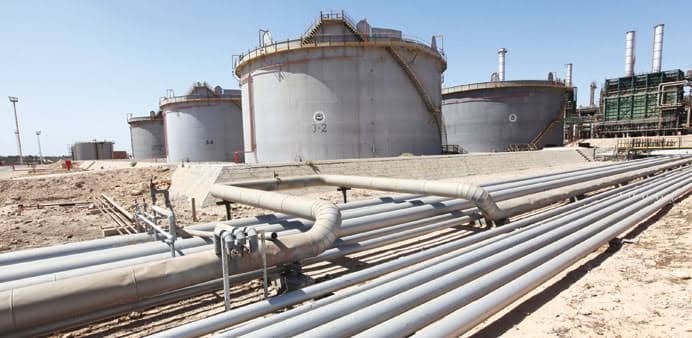Oil prices rose on Tuesday as the Middle East crisis and a Libyan supply outage reduced the previous day’s heavy losses.
Brent crude futures were up $1.07, or 1.41%, at $77.19 a barrel by 1515 GMT and U.S. West Texas Intermediate crude futures gained $1.12, or 1.58%, to $71.89.
At their intra-day peaks both benchmarks were up by more than $2 a barrel but prices have since cooled.
Middle East Conflict Escalates
The Middle East conflict has intensified as Israel continues its fight against Hamas, a militant group that controls the Gaza Strip.
The Israeli military has said it will not stop its airstrikes until Hamas stops firing rockets at Israeli cities.
The violence has raised fears of a wider regional war that could disrupt oil supplies from the Middle East, which accounts for about 40% of global oil production.
Some major shipping companies are still avoiding the Red Sea after attacks by Iran-aligned Houthi militants in response to Israel’s actions.
Germany’s Hapag-Lloyd said on Tuesday it will continue to divert vessels around the Cape of Good Hope, adding extra time and costs to its operations.
Libya’s Largest Oilfield Shut Down
An unidentified group has caused a force majeure at Libya’s largest oilfield, Sharara, which has resulted in a reduction of around 0.3 million barrels per day of oil output.
On Monday, the National Oil Corporation (NOC) reported that an unidentified group closed a valve on the pipeline linking Sharara to the Zawiya oil terminal, which halted the flow of crude.
The NOC condemned the act as a “criminal” attempt to sabotage the oil sector, which is the main source of income for the war-torn country.
Libya, a member of the Organization of the Petroleum Exporting Countries (OPEC), has been struggling to restore its oil industry after a decade of conflict and instability.
The country’s oil output has fluctuated between 1.0 and 1.3 million barrels per day in recent months, far below its pre-2011 capacity of 1.6 million barrels per day.
Market Outlook Remains Uncertain
The rise in oil prices on Tuesday was partly a correction from the sharp drop on Monday, when both Brent and WTI fell by more than 3%.
The decline was triggered by Saudi Arabia’s decision to cut its official selling prices (OSPs) for its crude oil to Asia and Europe for February, signaling weak demand in those regions.
The move also raised concerns about a potential increase in oil supply from OPEC and its allies, known as OPEC+, which have been restraining their output to support the market.
However, Saudi Arabia on Tuesday emphasized its desire to support efforts aimed at stabilizing oil markets and said it will continue to monitor the situation closely.
Analysts said the market outlook remains uncertain as the coronavirus pandemic continues to weigh on oil demand, especially in Europe and Asia, where lockdowns and travel restrictions have been imposed to contain the virus.
In addition, the market is looking forward to the U.S. inflation data on Thursday, which could have implications for the U.S. dollar and the Federal Reserve’s monetary policy.
Despite the current challenges, some experts see hope for a more sustainable and resilient energy future.
They point to the growing momentum for clean energy transitions, driven by the Paris Agreement on climate change, the U.N. Sustainable Development Goals, and the net-zero emissions pledges by many countries and companies.
They also highlight the opportunities for innovation and investment in renewable energy, energy efficiency, and low-carbon technologies, which could create jobs, boost economic growth, and enhance energy security.
They urge governments, businesses, and consumers to work together to accelerate the shift to a cleaner and greener energy system, which could benefit both the planet and the people.
Source: Reuters



